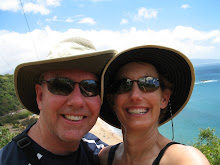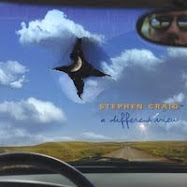Humbled, speechless, surprised, stimulated, embarrassed, relieved….a wide range of feelings came up as we journeyed through former communist Europe. The Czech Republic, Poland, Slovakia, Hungary, Slovenia, Croatia, Bosnia & Herzegovina, Montenegro and Serbia - now that we have traveled to the last former communist country on our itinerary we are prepared to write about our perspectives and interactions.
It’s hard to believe it’s only been 20 years since the Berlin wall fell and only 10 years since Slobodan Milosevic (Serbia’s communist leader) was ousted. In our eyes all of the countries have come a long way in a very short amount of time and are doing a fantastic job of transitioning to democracy and a more capitalist way of life.
There were many times when we shook our heads at the bland buildings and factories with huge smoke stacks that remain from that era. The ugly, blocky, massive statues and monuments erected during that time mystified us. How could artists not be permitted to be creative?
The biggest eye openers, though, came from our discussions with the people that are making the difficult change from communism to democracy. We were really surprised to hear that, for as bad as life was; restricted freedoms, all sorts of controls, a large # of deaths to people that opposed the party; that life under communism for many people was pretty good. Some even think that a few of the policies from then are better then today's.
We also learned more details on how the Communist system was practiced in Poland and the Czech Republic, as opposed to in Hungary, as opposed to in Tito’s Yugoslavia and Milosevic‘s Serbia. Before our travels we pretty much thought that communism was communism was communism.
In Prague we spoke with Dana who participated in the “Velvet Revolution” that occurred in the city in 1989. We were fascinated as she told us of being one of the 300,000 demonstrators that risked their lives in Wenceslas square demanding an end to the repression. The police hid in doorways and rooftops and used all types of violence to stop the protestors. She told us how proud she was to participate. We pondered whether or not we would have joined and decided that, yes, we probably would have. It surprised us when she referred to the period as “Totalitarianism”, not Communism. We both noticed that she didn’t once use the word communism.
Her parents are part of the “lost” generation and are still struggling 20 years later as their whole way of life (and financial stability) changed dramatically. It’s awful to think that there are still around 15% of voters that check their ballots for a Communist candidate. But, then again, who can blame them. For many it was all they knew. Change is hard for most people. (Who moved my cheese?) Dana, who is approximately our age, is embracing Democracy and Capitalism, but is working her buns off to make a decent living. We got a real sense that she is happy with the changes, but is hoping that the new era will bring economic benefits and more prosperity then before.
In Budapest, Hungary we spoke to Charles and Gertrude who both said that the “freedoms” they had under Communism were pretty good. They had the opportunity to travel to the West, for work and shopping excursions, and always returned. We heard that the Hungarians enjoyed the most freedoms of any of the Soviet satellites. Hungary was described as the “Happiest Barrack” in all of the Soviet system.
It was hard for us to comprehend that Charles and Gertrude liked many communist ideals - that everyone was essentially equal and had a secure living. And although the jobs weren’t great; unemployment was non existent. Today, there is a much wider gap between rich and poor and a much larger number of homeless and beggars.
Both Petra from Slovenia and Dennis from Croatia said that the version of Communism as practiced by Tito allowed them to have small independent businesses, but when it came to buying day to day stuff, the choices were very limited. For example shoes were available in black or white only. Remember, this was in 1988!!
Some of our new acquaintances actually made very good money by smuggling various goods on the black market. Baby diapers and cigarettes were financially worth the risk of crossing the border with illegal items. Dish washing soap was a really low quality, so a better brand was typically smuggled in from Austria as well. People had to do what they could to make a difference for themselves.
Traipsing through former communist Europe illuminated our lack of knowledge and highlighted our misperceptions about a regime and a time that we were taught to think was about as awful as it could get. It was exhilarating to see and hear other perspectives. Learning about an era that ended in our lifetime reinforced why we decided to set out on our year long adventure.
We wanted to be exposed to alternative ways of thinking, living, eating, praying, etc. And former Communist Europe did just that. Much more then either of us thought it would.
We hope that the wonderful countries we visited and the brave people we met won’t have to create more graveyards for future Totalitarian leaders. To a bright future for a beautiful land and people.



















Just after the Berlin wall fell Car & Driver got a hold of a Trabant to do one of their road tests (Just like they do with shiny new Porsches)
ReplyDeleteIt was great-- First they had to get EPA approval to bring it in to the US, under the condition they export it right after the testing for the article was over..